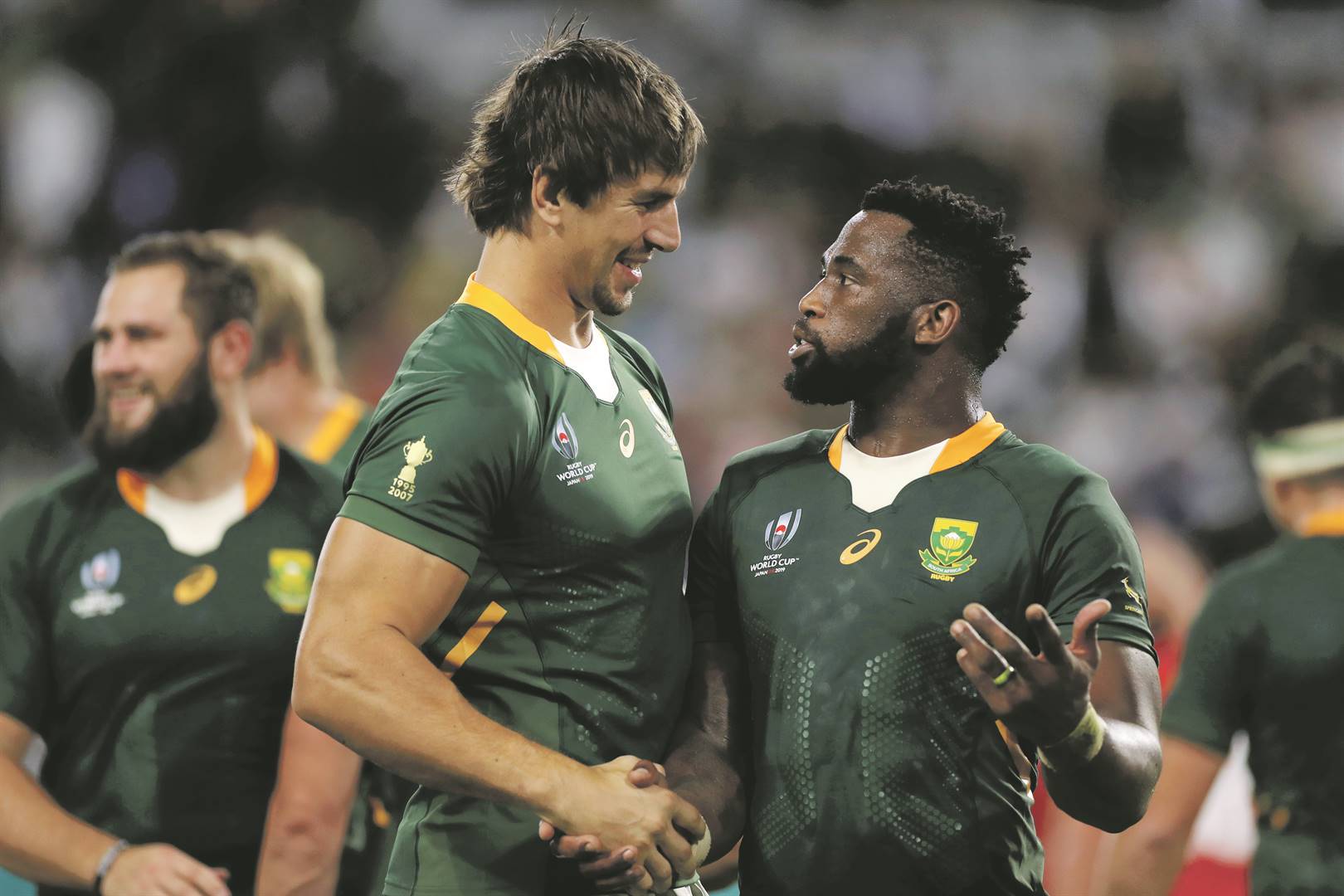
South African rugby has finally reached a place where the majority of people will unite behind a black captain from Zwide to take us over the final hurdle to World Cup glory, writes Adriaan Basson.
South Africa will not be a different country when we wake up on Sunday morning, but we need to win the Rugby World Cup like the Karoo needs rain.
It's been 24 tough and sobering years since François Pienaar and former president Nelson Mandela lifted the Webb Ellis trophy in 1995. As much as we can wax lyrical about how that victory brought South Africans together, we are much more mature and realistic about where we are as a nation today.
One rugby game of 80 minutes will not solve our massive problems of unemployment, poverty and inequality. It won't fix Eskom, help the National Prosecuting Authority start making those long-awaited state capture arrests or magically eradicate racism.
WATCH: Siya and the Springboks thank SA, call for final wave of support
A Bok victory will not undo the damage done to our social fabric by a vicious and divisive campaign designed by a politician and his friends to capture billions in state revenue. And it will certainly not do away with Twitter trolls and those who made it their political project to divide us according to our apartheid race classifications.
But a victory may show and inspire us that we are #StrongerTogether, which has become the slogan of Bok captain Siya Kolisi's campaign to RWC glory.
Sport has the magical ability to make us put our differences aside for a fleeting moment and rejoice in unity. The streets of Twitter may even be less volatile on Saturday morning! (Imagine Helen Zille and Julius Malema agreeing on something!)
The importance of Kolisi – the first black Springbok skipper – leading us to possible World Cup glory cannot be overstated. Not only does he carry the dreams of 59 million South Africans, but Kolisi's story will inspire a generation of poor black boys and girls who are looking for their one break in life.
Kolisi got his in 2003 when a talent scout spotted him representing Emsengeni Primary School in Zwide, outside Port Elizabeth, at a rugby tournament. Up to then, Kolisi and his friends practiced rugby with their school shoes on a dusty field. The school only had one set of rugby jerseys, which they had to share between teams.
His school coach saw his talent and he was picked up by a working system, that saw him entering the rugby powerhouses Grey Junior and High School in Port Elizabeth. The rest is history.
Kolisi's story represents a South Africa that works. It shows that we have a system in place that identifies and rewards poor, black children who excel at their craft. Of course, the system isn't perfect and naturally there are people who have abused policies of redress for their selfish, nefarious purposes.
But Kolisi's story shows what a working system can achieve. He didn't have the financial means or old boys' network to get "normal" access to the country's elite rugby schools, but we had rugby coaches and scouts out there who understood the importance of identifying top black talent for the sport to survive.
Rugby was inherently associated with the apartheid-system. For many years, black and white rugby players were prohibited by law from playing together and the green and gold jersey was only accessible to white men with the right networks.
Kolisi and those who came before him – people like the late Chester Williams, Tinus Linee, Lawrence Sephaka, Owen Nkumane, Thando Manana and Breyton Paulse – bashed down the walls and showed the world (and South Africa) that rugby was not the preserve of white men.
South African rugby has been through a lot and "transformation" was for many years treated like a swear word, but we have finally reached a place where the majority of South Africans will unite behind a black captain from Zwide to take us over the final hurdle on Saturday at Yokohama Stadium.
Siyamthanda Kolisi has showed us that you can conquer the world despite hardship and struggle. He is a South African hero.
- Basson is editor-in-chief of News24.




 Publications
Publications
 Partners
Partners























